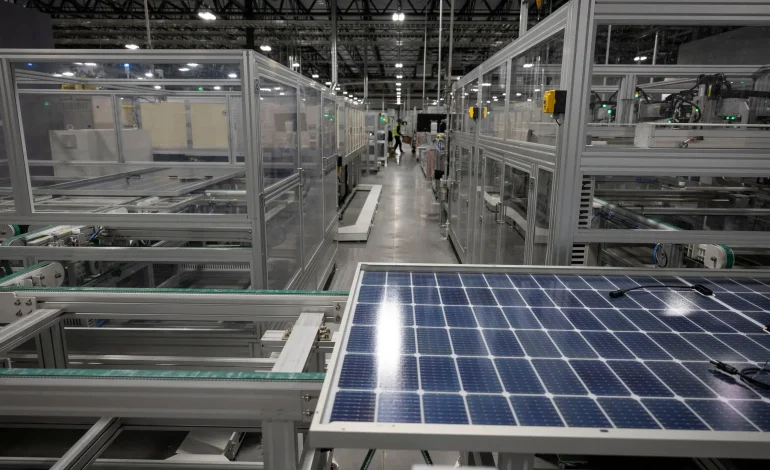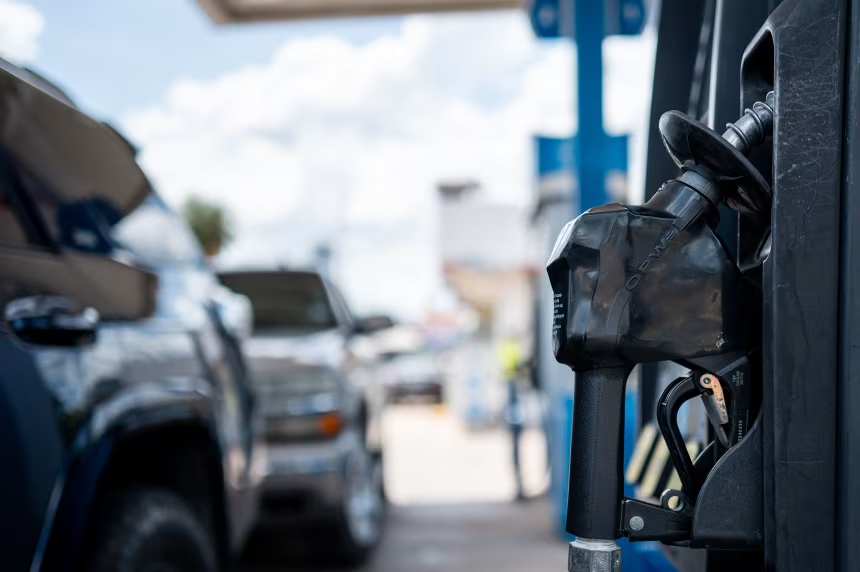Clean Energy Investments Face Uncertainty Amid Proposed GOP Tax Overhaul

A wave of clean energy investments spurred by the Inflation Reduction Act (IRA) is facing new uncertainty as Republican lawmakers propose a tax plan that would significantly curtail the law’s climate-focused incentives, the New York Times reports.
Since 2022, companies have announced more than $843 billion in US-based projects aimed at reducing greenhouse gas emissions, driven by generous tax credits established under the IRA. These include wind farms in Wyoming, solar panel factories in Georgia, lithium mines in Nevada, and carbon capture facilities in Louisiana. However, only about $321 billion has been spent so far, with the remaining $522 billion still in planning stages, according to data from the Clean Investment Monitor, a project led by the Rhodium Group and MIT.
A draft bill released by Republicans on the House Ways and Means Committee this week proposes phasing out or ending many of these tax credits to offset a separate $4 trillion tax cut plan backed by President Donald Trump. Key provisions would roll back credits for clean electricity, domestic manufacturing of green technologies, and consumer incentives for electric vehicles.
This shift could have major economic and political implications. The data shows that over three-quarters of the pending clean energy investments are located in Republican-held congressional districts, potentially placing local jobs, infrastructure, and tax revenues at risk.
“It’s jobs, it’s tax revenue into local communities,” said Ben King, associate director at the Rhodium Group. “It does represent a meaningful economic change in some of these places.”
The proposed rollback has triggered intense lobbying in Washington. Some Republican lawmakers, including Representative Juan Ciscomani of Arizona, are advocating to retain certain incentives that are directly benefiting their districts. Others, however, remain committed to repealing the IRA’s climate provisions in full.
If enacted, the policy changes could significantly alter the trajectory of US energy development. Analysts warn that clean energy deployment—including electric vehicles, wind and solar power, and battery storage—would likely slow sharply. According to Rhodium Group projections, repealing the credits could result in wind and solar installations dropping by half over the next decade, while fossil fuel use would rise, leading to higher emissions and electricity costs.
The manufacturing sector may also feel the impact. Since the IRA passed, dozens of factories have been announced across the country to produce solar panels, wind turbines, electric vehicles, and batteries—many of which were incentivized by domestic production credits. For example, a major solar panel factory in Dalton, Georgia and a Hyundai EV plant near Savannah are among the largest new industrial investments linked to the IRA.
However, without tax certainty, some of these developments have been paused. Heliene, a solar manufacturer, has held off building a new $350 million factory in the Midwest due to the lack of clarity on future incentives.
“There is a remarkable tension right now,” said Jason Grumet, CEO of the American Clean Power Association. “We have the best fundamentals for energy investment in a generation, and the greatest amount of uncertainty. That is a collision that all manufacturing is now trying to navigate.”
Beyond wind and solar, the IRA has also supported emerging technologies such as low-carbon hydrogen, green steel, and carbon capture. But many of those initiatives could also be curtailed under the GOP’s proposed legislation. The bill calls for ending hydrogen fuel credits by year-end and includes broader cuts to the Department of Energy, which plays a central role in advancing new energy technologies.
Experts caution that pulling back support could put the US at a competitive disadvantage globally.
“Other countries are rapidly scaling up investments in green steel, green cement, and low-carbon manufacturing,” said Lindsey Baxter Griffith, CEO of Clean Tomorrow. “Without a clear strategy here, we risk falling behind.”









The latest news in your social feeds
Subscribe to our social media platforms to stay tuned